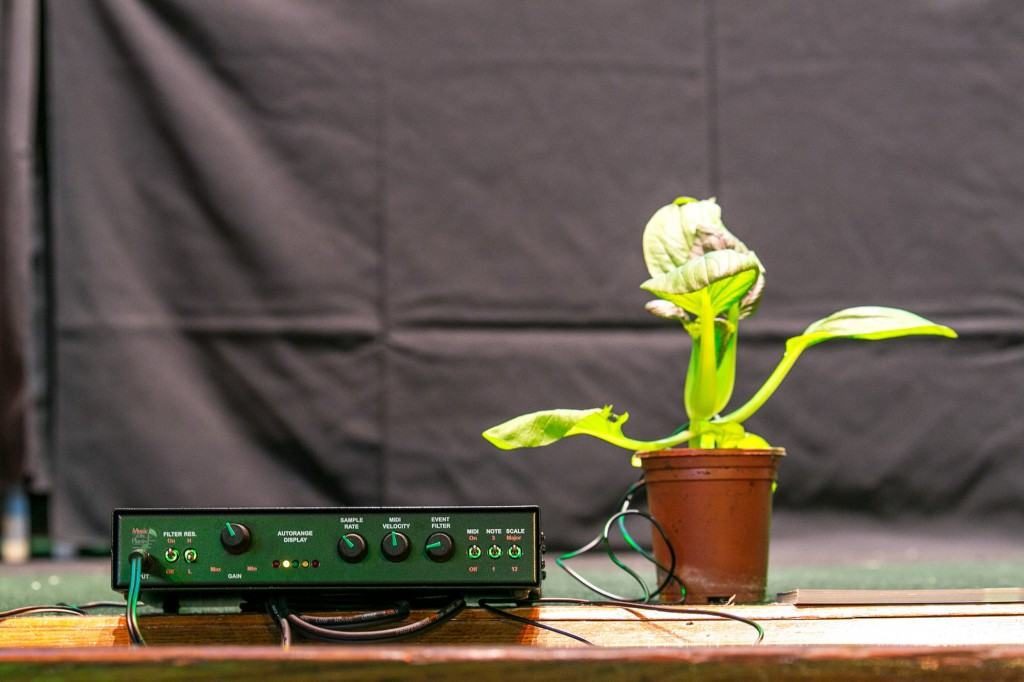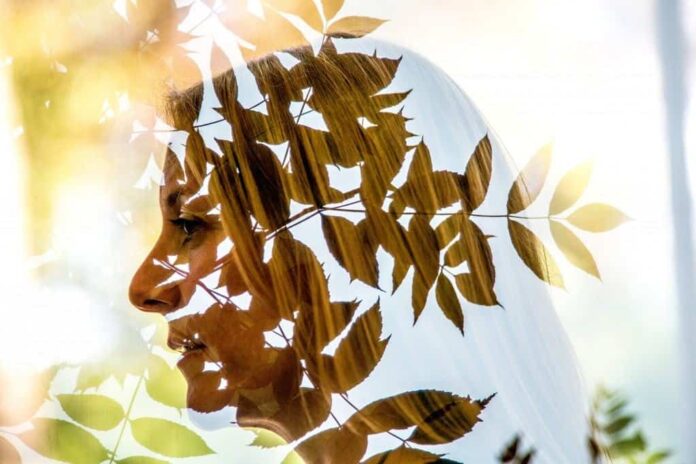October’s gusts and showers are here and the leaves are changing to orange and brown, before crinkling and falling onto the paths we walk. One such leaf-lined path that I walked along last weekend, October 4, was that leading to the Inner Circle of Regent’s University, Regents Park, London, where a conference, unlike any other, with the name Plant Consciousness, was held.
On the lead up to the weekend I had been reading a book by Jon G. Hughes: A Druid’s Handbook to the Spiritual Power of Plants (review coming soon), where he provides a brief yet fascinating history of alchemy. He relates the alchemical preparation of plant medicines, in the ‘spagyric’ process, to a tradition of Welsh druids, whereby both systems follow a three stage process of separation, purification and cohobation (alchemical)/amalgamation (druidic).
Hughes explains that in Alchemy there are the workings of the greater circulations, where metals and minerals are handled, and the lesser circulation, which is concerned with the plant kingdom. Within each circulation, the outer elixir, which is the exoteric or the physical, and the inner elixir, which is the esoteric or hidden/spiritual, are aimed at being elevated into perfection. According to Hughes, the druids hold everything in nature to already be perfect. Their work, therefore, is concerned with releasing the full power latent in the plants.
I was reminded of the alchemist’s work on transformation, and the druids realizing potential, at Plant Consciousness, initially by the conference being held in the inner circle of Regents Park, though, chiefly, by the intention of all who attended to realise and release the full potential latent in the relationship between the plant and animal kingdoms.
To begin with, so everyone could leave their journeys behind and find presence, Emma Farrell, who organised the event along with Davyd Farrell, opened the conference with a meditation. Julian Rose, an organic farmer, then spoke about the differences in soil farmed organically and soil farmed with pesticides and fertilisers with hard-hitting stats, such as: a tablespoon of organic soil has over 10,000 micro-organisms in it, while the same of non-organic soil has none in what he described as dead soil. The latter is where the majority of supermarket food comes from. After Emma’s calming introduction, it was straight into the brutal, unvarnished, truth of the dire environmental and food situation.
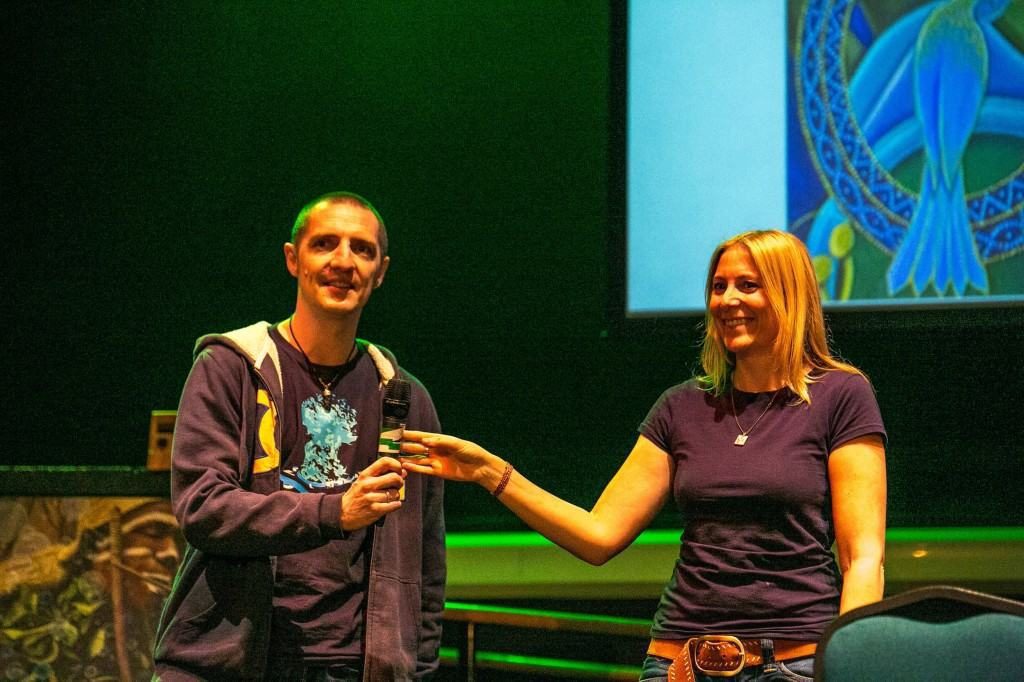
Interestingly, Rose also called into question buying organic produce in supermarkets as an ethical alternative, backed up again by eye-opening stats: a trolley full of non-organic produce has on average 6,000 km of air miles attached to it, while a trolley full of organic produce is anchored to around 8,000 km of air miles. To improve on this,Rose suggested, buying local and for buyers to view each purchase as the casting of a vote.
By the end of Rose’s talk enthusiasm for future actions gathered and from the audience’s applause when Rose spoke of his campaign successes, such as preventing genetically modified crops being grown in Poland, I was not alone in this. My action will probably not extend as far as Julian Roses’, for a while at least, yet over the cause of the day it was said again and again that the smallest actions, even the slight alteration to routine, are usually the changes that stick and stand the length of time.
I’ve begun by actually organising a new weekly veg box from a local organic farm, something I have been meaning to do for what feels like aeons. From previous experience, weekly veg boxes deliver a cheaper food bill than supermarkets do, and living in the countryside means these resources are easily called upon . In considering the city, I wasn’t sure how I could switch to buying locally grown organic produce at a reasonable price in London though, however there seems to be acres of room for exploration into green cities, and throughout the day city farms, guerrilla gardening and pot gardens were frequently discussed.
Being active in the transformation of our world was a message carried forward by John Perkins who approached the task with a positive angle: ‘cleaning up our world can be enjoyable and fun’. Coming from an economics background, Perkins claimed that the current economic system in place is in fact a death economy (ok, not so positive) where only a few in our society, and globally, benefit. He suggested turning this round to a life economy where jobs to clean up polluted areas are provided. Again, being active to manifest change was the push in his talk and Perkins urged the audience to each choose a cause to support everyday by sending one email.
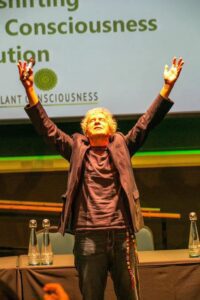
To mix the talks up, organiser and host Davyd Farrell introduced beat-boxer Marv Radio formerly Marvill Superlungs, who I was sitting next to, and who I thought gave off a rather timid air, all part of the performance, maybe? When he walked on stage and started mixing some poetry with reverberating sub-dub level didgeridoo-like baselines, which came from deep-down-somewhere only God knows, we were all blown away and his lyrics about his own personal journey towards environmental and spiritual realisations were beautiful.
The organisation and thread of talks clearly had a lot of consideration given to them by Davyd and Emma, a kind pair who encouraged discourse on ways to listen and learn from the teachings of plants and to be open enough to receive what they have to say. (Incidentally, they are organising another conference in November: Gateways Of The Mind.) Listening to the plants was Tigrilla Yvette Soler’s research, not with psychedelic teacher plants or meditations, but with bio-feedbacks hooked up to plant leaves, which then run the signal through an algorithm that allocates different signals to a sound on a synthesizer. The result was a melody of glockenspiels, bells and a rock organ.
What was especially fascinating was the response the plants had to sounds they were making. Soler said when she hooks a plant up (which sounds a bit odd) for the first time, they are not particularly vocal. She said that after a while, the plant makes more sound, and after some more time they start to produce scales which, she said, indicates the presence of self-awareness. Hearing the plants in this way had, she said, transformed her relationship with them because she now feels an empathy with them. This encouraged her to further research into plant behaviour.
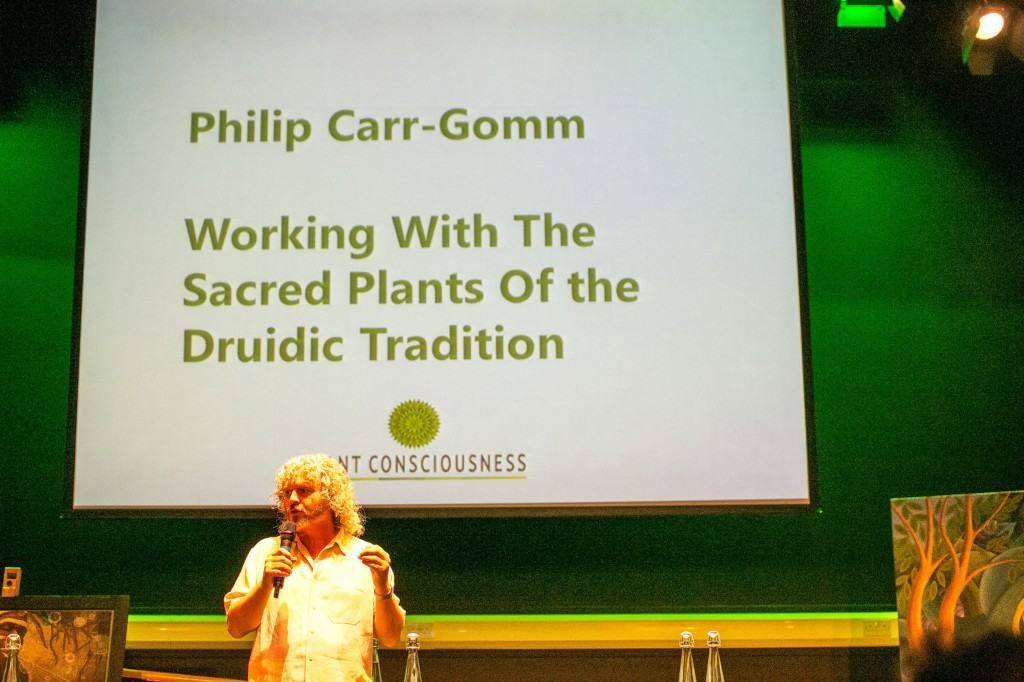
In the afternoon, we also had the pleasure of having a guided mediation from Philip Carr-Gomm as part of a demonstration into the exploration of our inner visionary worlds. This was part of an explanation into an holistic approach of transforming our relationship with the plant world through care and transformation of the self. At the beginning of the day, Julian Rose and John Perkins spoke about being active, outward facing, and getting involved, and this work in alchemical terms is contributing towards the transformation of the outer elixir. Gomm’s talk was paying attention to caring for the inner elixir, the esoteric, and the spiritual; and ultimately, if both are nurtured then the full potential can be realised and truly wonderful things can happen – from veg boxes to the green globe.
